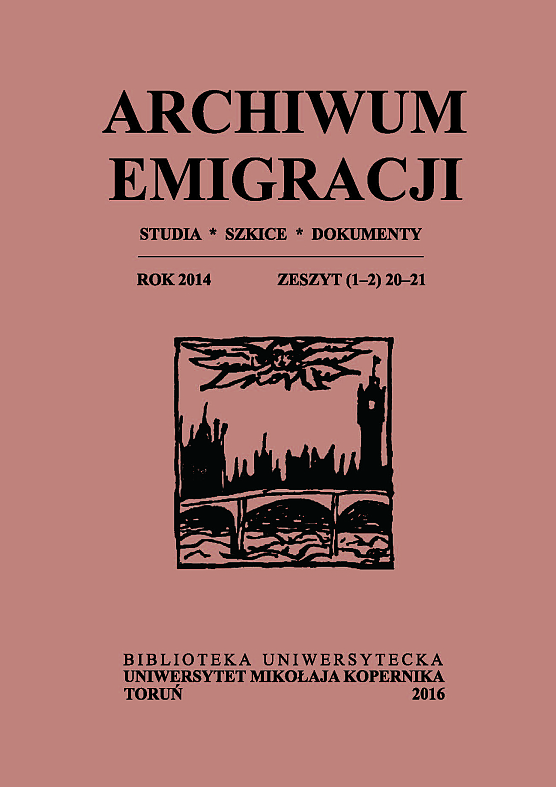Artura Sandauera topografia tożsamości
DOI:
https://doi.org/10.12775/AE.2014.004Słowa kluczowe
Artur Sandauer, Polish literature, Jewish literature, identity, space, geopoetics.Abstrakt
ARTUR SANDAUER’S TOPOGRAPHY OF IDENTITY
The article discusses the role of spatial elements in constructing identity in autobiographic texts of the Polish critic and writer Artur Sandauer (1913–1989). Sandauer appears as a writer of space par excellence. It is particularly visible in the interpretations of his own origin. He often makes such self-interpretations, each time giving his lineage a generalised dimension and presenting it not only as a family or ethnic genealogy but also as a cultural origin. He almost always addresses his origins in geographical or topographical categories. Sandauer emphasises that his birthplace, Sambor, was a spatial, historical, cultural and linguistic borderland, showing its distance from cultural and political centres. At the same time he recalls other writers of Jewish origin: Franz Kafka, Bruno Schulz, Max Brod, and implies that ideas and works of fundamental importance to contemporary European culture were born in such peripheral spaces. Sandauer uses spatial terms to speak also about the history of his family and the assimilation of the Jews, shown as a gradual relocation from the Jewish to the Polish quarter. A separate place in Sandauer’s mind is occupied by Israel as a space of Jewish salvation on the one hand, and of covering up the traces of the Central European Jewish identity on the other (the hebraisation of surnames and the gradual disappearance of Yiddish). The writer places himself in between these spaces as a “man of the borderland.”
Pobrania
Opublikowane
Jak cytować
Numer
Dział
Statystyki
Liczba wyświetleń i pobrań: 478
Liczba cytowań: 0



